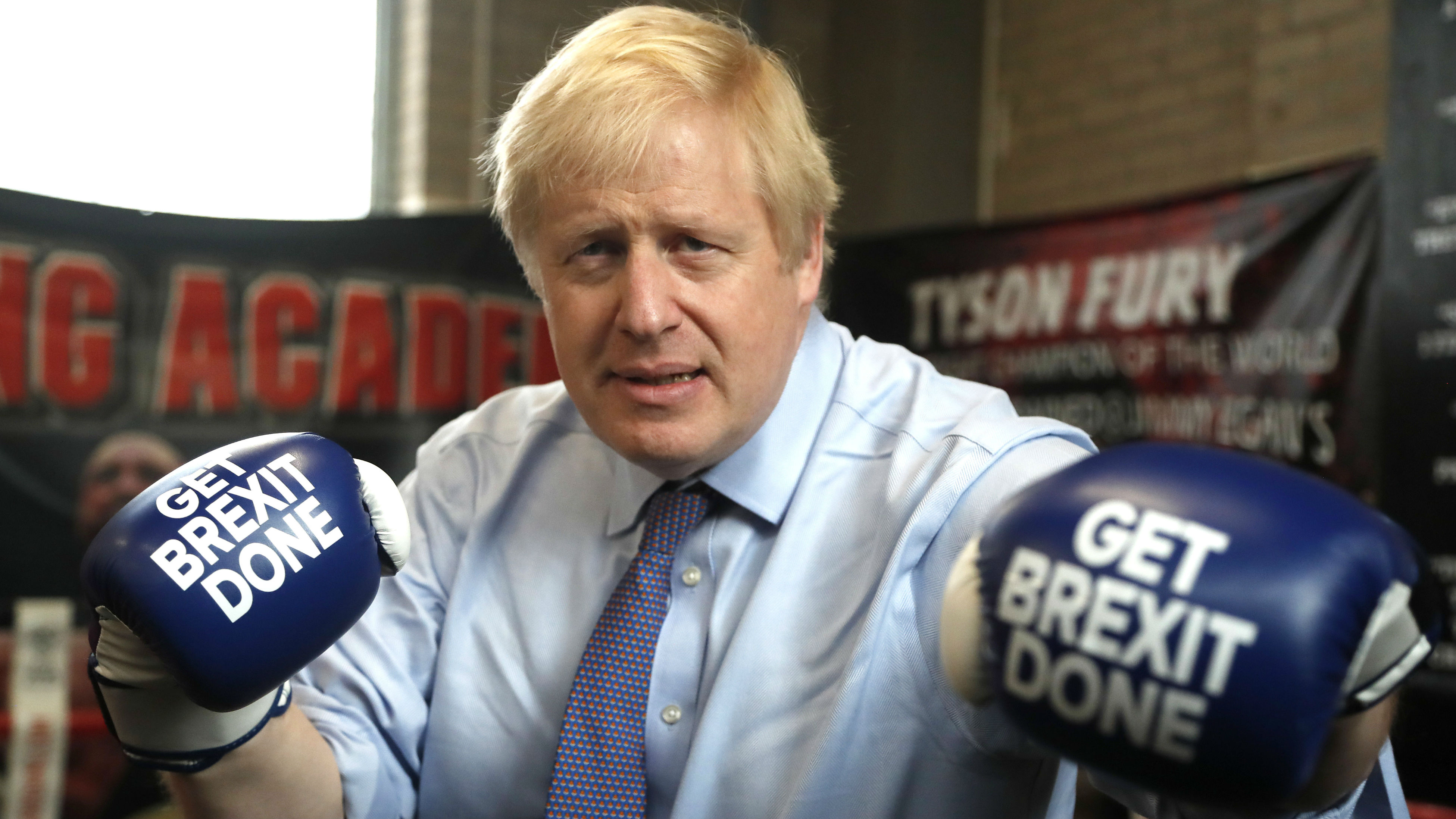MPs pass Johnson’s withdrawal agreement paving way for January exit
With Tories’ 80-strong majority, the EU divorce bill passes by a comfortable margin

A free daily email with the biggest news stories of the day – and the best features from TheWeek.com
You are now subscribed
Your newsletter sign-up was successful
MPs have voted to pass Boris Johnson’s Brexit deal, setting Britain up to leave the European Union by the end of January.
The bill passed by 358 to 234 – a majority of 124. The result was to be expected after Johnson’s electoral success last week delivered a Commons majority of 80 for the Conservatives, says the BBC.
The bill will now move to what is known as “committee stage”, where there will be an opportunity for changes to be made to the wording or for new clauses to be added.
The Week
Escape your echo chamber. Get the facts behind the news, plus analysis from multiple perspectives.

Sign up for The Week's Free Newsletters
From our morning news briefing to a weekly Good News Newsletter, get the best of The Week delivered directly to your inbox.
From our morning news briefing to a weekly Good News Newsletter, get the best of The Week delivered directly to your inbox.
This is the second version of the Withdrawal Agreement Bill, which was first published in October.
As The Guardian reports, it includes:
- Powers to make the Brexit deal legal under domestic law.
- The legislation enabling the transition period allowing the UK to stay in the customs union and single market between 1 February and 21 December 2020.
- Powers to ministers and devolved governments to deal with the separation issues particularly in Northern Ireland.
- Powers and arrangements to ensure EU citizens’ rights laid out in the withdrawal agreement are implemented.
A number of small changes have been made to the bill including the removal of:
- The clause giving MPs the right to approve an extension to the transition period.
- The right of the House of Commons to approve the negotiating objectives of the government in the next phase of the Brexit talks
- The removal of clauses pledging alignment with the EU on workers’ rights.
- Legal protections for refugee children reunited with family members in the UK have been watered down.
Some clauses have also been added, for example:
A free daily email with the biggest news stories of the day – and the best features from TheWeek.com
- A clause outlawing an extension to the Brexit transition period beyond 31 December
- A clause locking in Brexit at the stroke of midnight, 31 December.
-
 AI surgical tools might be injuring patients
AI surgical tools might be injuring patientsUnder the Radar More than 1,300 AI-assisted medical devices have FDA approval
-
 9 products to jazz up your letters and cards
9 products to jazz up your letters and cardsThe Week Recommends Get the write stuff
-
 ‘Zero trimester’ influencers believe a healthy pregnancy is a choice
‘Zero trimester’ influencers believe a healthy pregnancy is a choiceThe Explainer Is prepping during the preconception period the answer for hopeful couples?
-
 How corrupt is the UK?
How corrupt is the UK?The Explainer Decline in standards ‘risks becoming a defining feature of our political culture’ as Britain falls to lowest ever score on global index
-
 The high street: Britain’s next political battleground?
The high street: Britain’s next political battleground?In the Spotlight Mass closure of shops and influx of organised crime are fuelling voter anger, and offer an opening for Reform UK
-
 Biggest political break-ups and make-ups of 2025
Biggest political break-ups and make-ups of 2025The Explainer From Trump and Musk to the UK and the EU, Christmas wouldn’t be Christmas without a round-up of the year’s relationship drama
-
 ‘The menu’s other highlights smack of the surreal’
‘The menu’s other highlights smack of the surreal’Instant Opinion Opinion, comment and editorials of the day
-
 Is a Reform-Tory pact becoming more likely?
Is a Reform-Tory pact becoming more likely?Today’s Big Question Nigel Farage’s party is ahead in the polls but still falls well short of a Commons majority, while Conservatives are still losing MPs to Reform
-
 Asylum hotels: everything you need to know
Asylum hotels: everything you need to knowThe Explainer Using hotels to house asylum seekers has proved extremely unpopular. Why, and what can the government do about it?
-
 Taking the low road: why the SNP is still standing strong
Taking the low road: why the SNP is still standing strongTalking Point Party is on track for a fifth consecutive victory in May’s Holyrood election, despite controversies and plummeting support
-
 Is Britain turning into ‘Trump’s America’?
Is Britain turning into ‘Trump’s America’?Today’s Big Question Direction of UK politics reflects influence and funding from across the pond